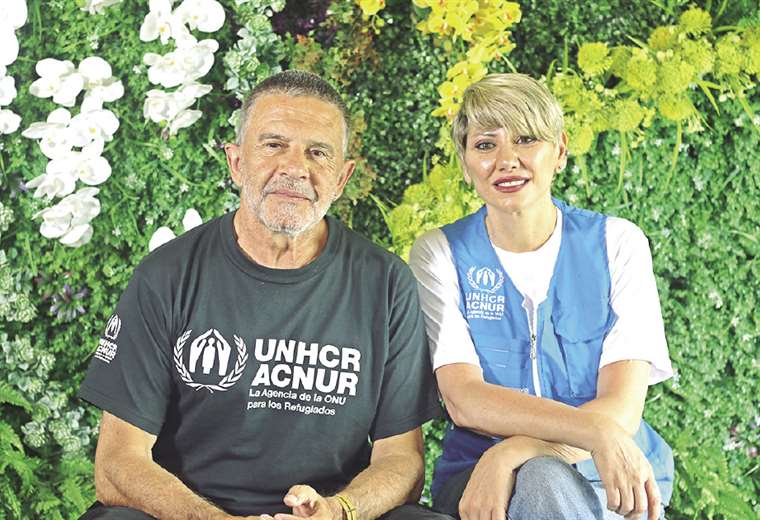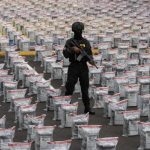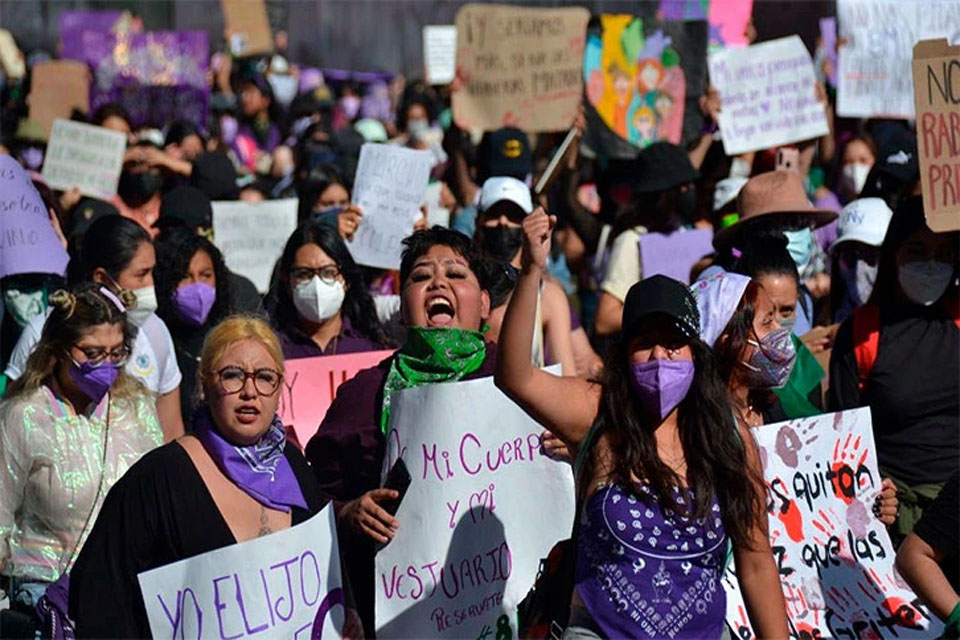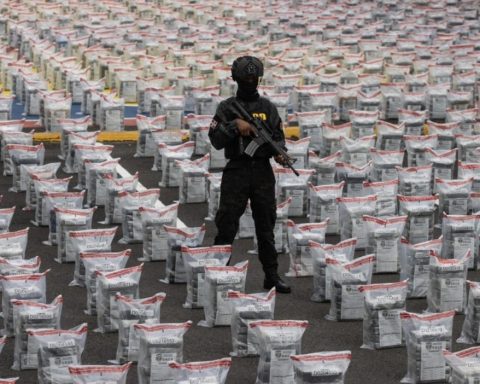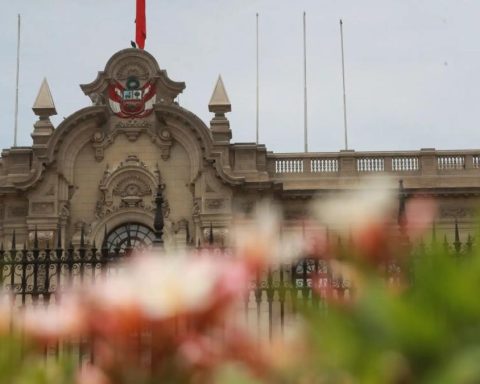October 20, 2024, 7:00 AM
October 20, 2024, 7:00 AM
In the context of the massive displacement of Venezuelan citizens and the devastating effects of forest fires, the United Nations High Commissioner for Refugees (UNHCR) reinforced its work in Bolivia.
The decision was already made at the beginning of this year, but the agency had to mobilize with humanitarian assistance, in coordination with other international institutions, in the face of the displacement of inhabitants of the communities that were forced to flee due to the forest fires, according to Karmen Sakhr, UNHCR representative for the Southern Cone, explained in an interview with EL DEBER.
Sakhr arrived in the country with Uruguayan actor Osvaldo Laport, UNHCR goodwill ambassador. Both, who have already been in the organization for more than 20 years, shared some details about their mission.
“We have a presence in Bolivia and I am here in Bolivia. We work from the multi-country office (which is in Buenos Aires, which has the responsibility of being in each country and responding in each country. And knowing the need to do more in Bolivia, since the beginning of this year, we expanded our presence,” mentioned the UNHCR representative for Bolivia, to Chile, Colombia, Chile and Venezuela.
Bolivia, strategic situation
Sakhr explained that Bolivia has become a strategic transit point for many refugees and migrants, especially from Venezuela, Colombia and Peru. Although many of them cross the country towards Chile or Argentina, a significant number have decided to stay in Bolivia. The Venezuelan diaspora is the most visible today, although Peruvian refugees have been in the country longer. Sakhr highlighted that Bolivia has a welcoming culture that has allowed these people to integrate into Bolivian society. He also mentioned the challenges facing the country, such as limited infrastructure and the need for international support.
“Bolivia is a country with a culture of reception, but it faces challenges and difficulties because it is receiving many people who are crossing to go to other destinations. This creates a huge liability and burden on existing infrastructure, which already needs support,” Sakhr said.
The UNHCR representative stressed the importance of making visible not only the difficulties, but also the success stories of refugees and migrants who have decided to stay in Bolivia and have managed to integrate into the economic and social life of the country.
But, the Venezuelan exodus has been one of the most significant migratory phenomena in recent years. According to UNHCR data, more than seven million people have left Venezuela, of which almost six million have chosen to stay in Latin America. Bolivia has been one of the transit countries for many of these migrants, although some have decided to settle permanently in the country.
Sakhr explained that cultural and linguistic proximity facilitates the integration of Venezuelan migrants in Bolivia and other countries in the region. “Geographical proximity and language play a fundamental role in the decision of many Venezuelans to stay in Latin America. It is easier for them to access education, find work and integrate socially,” he said in the interview.
Despite this, the situation in Bolivia is different from that of other countries in the region such as Colombia, which has received the largest number of Venezuelan migrants. In Bolivia, the number of Venezuelan refugees is relatively small in comparison, but the migratory flow remains constant. According to UNHCR, there are currently 240 Venezuelan refugees in the country. Many of them have requested asylum or protection from the Bolivian authorities through the National Refugee Commission (Conare).
UNHCR has provided updated data on the refugee population in Bolivia, which includes people of various nationalities. Peruvian refugees are the largest group, with 527 people recognized as refugees, followed by Venezuelans (240), Colombians (200) and Cubans (48). There are also refugees from Syria (22), Iraq (15), Russia (14) and Ukraine (7), among other countries, since 2018.
As for asylum seekers, the numbers are lower, with 11 people coming from Paraguay, seven from Peru and six from Colombia, among other countries. These data reflect the diversity of the refugee population in Bolivia and the need to adapt reception policies to the different circumstances and needs of these population groups.
Sakhr stressed that, although UNHCR has a regional office that covers several countries in the Southern Cone, in recent years its presence in Bolivia has increased. “We have strengthened our presence in Bolivia and work in close coordination with local authorities. We do not work alone; All our interventions are aligned with the needs and priorities of the Bolivian government,” he stressed.
The regional representative highlighted that her organization collaborates with several civil society organizations and UN agencies, such as the International Organization for Migration (IOM) and Unicef to provide assistance to refugees and communities affected by conditions that may lead to displacement. citizens.
One of the biggest challenges that UNHCR faces in Bolivia is the lack of documentation for some refugees and migrants. This prevents them from accessing basic services, such as health and education, and makes it difficult for them to find work. To address this problem, the organization works on the regularization of these people in coordination with local authorities.
In addition to the problem of refugees and international migrants, Bolivia also faces an internal displacement crisis due to recurring forest fires, especially in the department of Santa Cruz. Every year, thousands of hectares of forest are destroyed, forcing many people to abandon their homes.
Sakhr highlighted that UNHCR has been working in collaboration with other UN agencies to provide support to communities affected by the fires. “The UNHCR team in Bolivia has been on the ground in Santa Cruz to help people displaced by the fires. We are providing hygiene kits, water purifiers and other supplies, he explained.
Climate change is one of the main causes of the increase in natural disasters in Bolivia, and this is generating a new wave of internal displacement. “Climate change is a global problem that is affecting Bolivia significantly. “The wildfires are forcing many people to move within their own country,” Sakhr added.
goodwill ambassador
Osvaldo Laport, known for his distinguished career as an actor, has been a UNHCR goodwill ambassador since 2006. His commitment to the refugee cause has led him to carry out multiple missions in several countries, including Lebanon, Congo, Guatemala and Mexico. On this occasion, Laport visited Bolivia for the first time and shared his experience in humanitarian work with the newspaper EL DEBER.
“Bolivia was a pending issue in my role as a goodwill ambassador. I have been supporting the cause of refugees for 20 years, and Bolivia is within the framework of what UNHCR is in the Southern Cone. For years I really wanted to be here and learn first-hand about the problems that refugees face in this country,” he commented.
During his visit, Laport visited reception centers for refugees and foundations that work in collaboration with the agency, such as Munasim Kullakita and Scalabrini. “These foundations are true guardians of human rights. It was very moving to meet children, adolescents and young people of different nationalities who have been welcomed by Bolivia,” he stated.
Furthermore, one of the most complex problems faced by migrants and refugees in Bolivia is human trafficking. Due to the vulnerable situation in which they find themselves, many migrants fall into the hands of trafficking networks that operate on the borders, where humanitarian operations have been carried out to combat this phenomenon.
Sakhr explained that UNHCR works in close coordination with other UN agencies and local authorities to prevent human trafficking and provide protection to migrants and refugees. “The migratory flow at borders often occurs in very difficult and irregular conditions, which increases the risk of trafficking. That is why it is essential that the interventions are well coordinated between the different agencies,” he stressed.
Although Bolivia does not receive the same number of refugees as countries like Colombia or Peru, it has established itself as a key transit country for migrants seeking better opportunities in other South American countries. Sakhr highlighted the importance of strengthening regional cooperation to address the migration crisis.
“Bolivia has a strategic role in the region. It receives migrants and refugees, but it is also a transit country. It is essential that we work with other countries in the region to guarantee that the rights of migrants and refugees are protected at all stages of their journey,” the official said.
